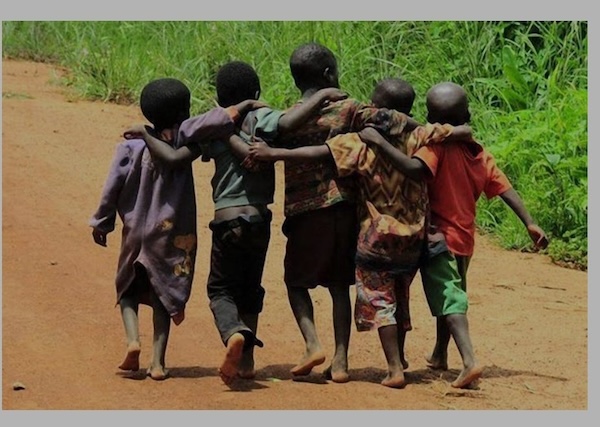
Ubuntu and the Hadzabe
Ubuntu is practised, lived and shared among all African peoples.
We do not yet know what the Hadza call Ubuntu in Hadzane language, but we know it exists among them—just as it exists among many other Black African peoples across the continent. Whether they are Bantu, Kush, Nile-Sahara, San, Khoi Khoi, Sandawe, Bambenga (Mbenga), Bambuti (Mbuti) or Batwa (Twa), the values of Ubuntu are reflected in how they live, relate, support and survive together.
Ubuntu is often colonially associated with southern Africa, but it is not confined to any one region or ethnic group. It is a shared African worldview. It is the idea that people are people through other people. That dignity, care and belonging are not individual possessions but are shaped in community. Among the Hadza of Tanzania, this worldview is not theoretical. It is visible in daily life.
Who are the Hadza?
The Hadza are an Indigenous people living near Lake Eyasi in north-central Tanzania. They are one of the oldest communities in the world, with archaeological and genetic links to humans who have lived in the region for tens of thousands of years. They are not Bantu-speaking, and their language has no known relation to surrounding languages. Despite many external pressures, including land loss and climate change, the Hadza have maintained a hunter-gatherer way of life centred on sharing, mutual respect and social balance.
How Ubuntu is practised among the Hadza
Shared food and shared lives
When a Hadza person returns with food, whether meat, berries or honey, it is shared with others in the camp. Everyone eats. No one is left out. There is no storing of wealth, no keeping for oneself. There is no need to say thank you because sharing is expected and assumed. Generosity is not a special act. It is a basic principle of being human. This reflects Ubuntu clearly. I am because we are.
No chiefs, no bosses, no coercion
The Hadza do not have formal leaders. Decisions are made together. Leadership is situational and based on experience, not dominance. This non-hierarchical structure respects the dignity and agency of every person. Social order is maintained not by force but by relationships, conversation and mutual understanding.
Support without conditions
Among the Hadza, care is not reserved for close relatives. Children are raised collectively. The elderly and sick are included in daily life. There is no formal welfare system because the whole way of life is a welfare system. This care for one another is Ubuntu in practice, where help is given because we are connected, not because someone has earned it.
Peaceful ways of dealing with conflict
When disagreements arise, they are dealt with calmly. Sometimes people separate for a while. Sometimes they talk it through. There are no punishments, no jails, no revenge. The goal is always to restore balance. This is not a soft approach. It is a strong and rooted way of keeping the community whole. It reflects Ubuntu’s focus on healing, not harming.
Ubuntu beyond the Hadza
The Hadza are not the only people who live this way. Across Africa, other communities practise similar values. Among Bantu-speaking groups, in the fishing villages of the Nile-Sahara region, in the cattle camps of the Kush lands, in San and Khoi Khoi communities, in the forests with the Bambenga, Bambuti and Batwa, we find the same patterns: shared labour, communal care, collective decision-making and deep respect for human life.
Ubuntu is not an invention. It is a memory. It is lived knowledge. It is what makes African social systems strong, especially under pressure. For social work, especially in Africa, this means recognising that Ubuntu is not a tool to be applied. It is a reality to be restored, protected and learned from.
Ubuntu lives wherever people refuse to let others fall behind. It lives among the Hadza. It lives in many African communities. And it continues to guide how we care for one another, not because we have to, but because we are.
Use the form below to subscibe to Owia Bulletin.
Discover more from Africa Social Work & Development Network | Mtandao waKazi zaJamii naMaendeleo waAfrika
Subscribe to get the latest posts sent to your email.


